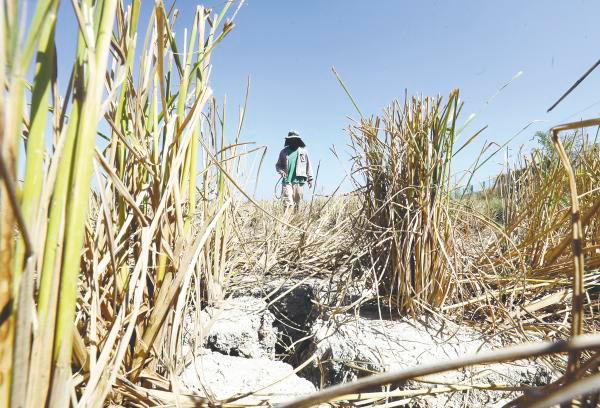GEORGETOWN: The Consumers’ Association of Penang (CAP) has urged the Agriculture and Food Security Ministry to look into the problems faced by padi farmers in an area under the Kemubu Agricultural Development Authority (Kada) in Kelantan.
CAP president Mohideen Abdul Kader said among others, the farmers were grappling with inadequate irrigation systems and transport networks.
“The decline in rice yields is also linked to the depletion of padi fields due to ongoing development projects, which involve land clearance and construction activities.
“Changes in land use have also had a direct impact on the availability and suitability of land for rice cultivation. The ministry must act immediately to boost the income of the farmers and national rice production.”
Mohideen said the combined effects of infrastructure shortcomings and the reduction of padi fields are hampering the maintenance of optimal yields in the region, adding that other contributing factors include floods, droughts, pest attacks and unsuitable soil.
“While the rice yield in the area exceeded the national average of 4.1 metric tonnes per hectare, it lags behind the 4.32 metric tonnes in Selangor, 4.24 metric tonnes recorded by the Muda Agricultural Development Authority and 5.05 metric tonnes in Penang.”
He said an inadequate and inefficient irrigation system poses high risks to numerous padi fields under Kada, while crops are being damaged by droughts and floods.
“In May 2023, 7,800ha of rice fields were affected by the heatwave in Kelantan. In December the same year, Kada suffered RM17 million in losses after padi fields were inundated by flood waters.
“In 2022, due to problems with the drainage system, 1,000ha of paddy fields were affected by soil degradation and Kada lost 4,200 metric tonnes of produce.“
Mohideen said if it is not dealt with immediately, more paddy fields would end up being abandoned as they cannot be cultivated.
He emphasised the urgent need to safeguard the future income and livelihoods of the 7,648 farmers and preserve the 25,149ha of padi fields under Kada.
“We hope the ministry will promptly address the underlying issues causing these problems, and that its agriculture-focused departments and agencies address the adverse effects of pesticides and use of heavy machinery.
“These practices pose a threat to the environment and can significantly impact the health and productivity of padi fields.”
Mohideen also called for measures to be taken to mitigate risks and ensure the adoption of sustainable agricultural practices that safeguard the environment and the long-term viability of padi farming.
He said if the problems being faced by the farmers continue, it would have more serious and adverse effects that reverberate throughout the agriculture sector and the broader populace nationwide.
“The farmers’ problems are already jeopardising their livelihoods. If it continues, it will also affect the stability of food supplies for consumers and cause rice prices to increase nationwide.”
Mohideen cautioned that if the ministry does not act quickly, the ability of the agriculture industry to forge ahead and rebound from difficulties would be threatened, causing serious and long-lasting impacts on the economy and society.










